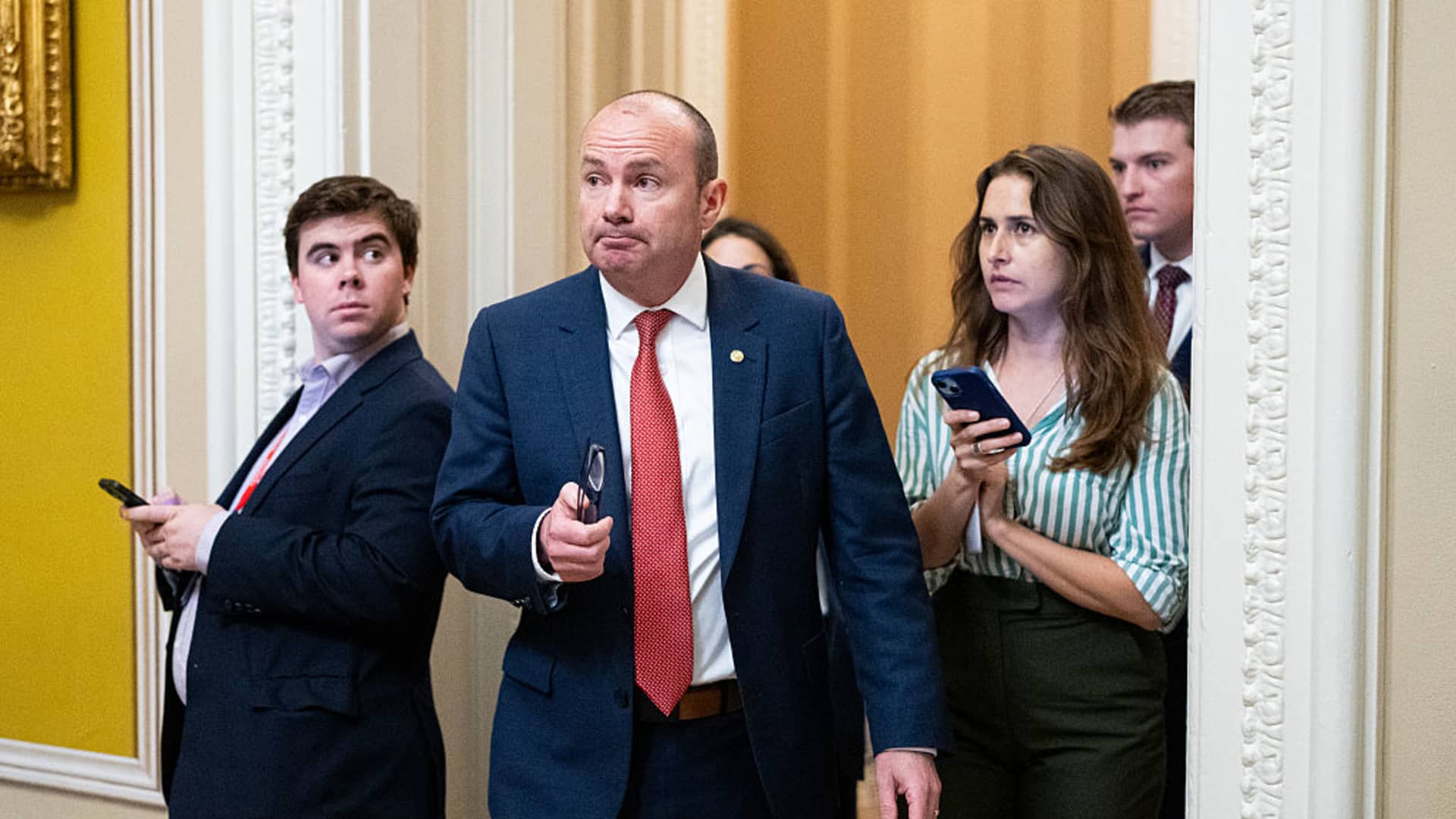The Perils of Misinformation: Senator Mike Lee and the Fake Powell Resignation
The Digital Age’s Double-Edged Sword
The digital age has revolutionized access to information, democratizing knowledge in unprecedented ways. However, this same accessibility has given rise to a parallel phenomenon: the rapid spread of misinformation. The recent incident involving Senator Mike Lee of Utah and a fabricated resignation letter from Federal Reserve Chair Jerome Powell exemplifies the dangers of unchecked information in the digital era. This case study underscores the critical need for media literacy, the role of social media in amplifying falsehoods, and the responsibilities of public figures in the information age.
The Anatomy of a Misinformation Incident
The controversy began with the circulation of a fake resignation letter, allegedly authored by Powell and addressed to President Donald Trump. The letter, dated July 22, 2025, claimed Powell was stepping down from his position. Senator Lee, a prominent Republican from Utah, shared the letter on X (formerly Twitter) with the caption “Powell’s out!” accompanied by siren emojis. The post was swiftly deleted, but not before screenshots proliferated, fueling the misinformation.
The incident immediately drew widespread criticism. Social media users quickly pointed out glaring inconsistencies, such as the letter being addressed to Trump despite Biden’s presidency. This raised serious questions about Senator Lee’s vetting process and the standards for information dissemination by public officials. The episode highlights the ease with which even seasoned politicians can be misled in the digital landscape.
Social Media as an Echo Chamber
The rapid dissemination of the fake letter underscores the power of social media platforms to amplify misinformation. Platforms like X can function as echo chambers, where users primarily encounter information that aligns with their preexisting beliefs. This dynamic creates a distorted perception of reality, making individuals more susceptible to false narratives.
In this case, the fake letter resonated with segments of the population critical of Powell’s policies. The desire to believe the information, coupled with a lack of critical scrutiny, facilitated its rapid spread. This incident reinforces the urgent need for social media platforms to implement more robust content moderation and promote media literacy among users.
The Credibility Crisis
The involvement of an elected official in spreading misinformation is particularly alarming. Public figures, by virtue of their positions, wield significant influence over public opinion. When a senator shares unverified information, it can lend credibility to falsehoods, eroding trust in democratic institutions. This incident raises critical questions about the responsibilities of public officials in the digital age.
Senator Lee’s actions highlight the need for elected officials to exercise greater diligence in verifying information before sharing it publicly. With substantial followings and platforms to shape public discourse, politicians have a duty to ensure the accuracy of the information they disseminate. Failing to do so can have profound consequences for democratic discourse and public trust.
The AI Factor
The likely AI-generated nature of the resignation letter adds another layer of complexity to the misinformation challenge. Advances in artificial intelligence have made it increasingly difficult to distinguish between authentic and fabricated content. This technological evolution poses significant challenges for individuals, media organizations, and social media platforms alike.
As AI technology continues to advance, it is crucial to develop new tools and strategies for detecting and combating AI-generated misinformation. This includes investing in AI detection software, promoting media literacy education, and establishing accountability mechanisms for those who spread false information.
Media Literacy as a Defense
The incident involving Senator Lee underscores the vital importance of media literacy in the digital age. Media literacy encompasses the skills needed to access, analyze, evaluate, and create media in various forms. It involves critical thinking abilities, such as identifying bias, evaluating sources, and distinguishing between fact and opinion.
To effectively combat misinformation, it is essential to equip individuals with the skills and knowledge necessary to navigate the complex information landscape. This includes teaching children and adults how to evaluate sources, identify fake news, and critically assess online information. Media literacy education should be integrated into school curricula and made widely available through workshops, online resources, and community programs.
Beyond the Individual: Systemic Solutions
While individual responsibility is crucial, addressing the misinformation problem requires comprehensive systemic solutions. This includes:
- Holding social media platforms accountable: Social media companies must take greater responsibility for combating misinformation on their platforms. This involves investing in content moderation, developing AI detection tools, and promoting media literacy among users.
- Strengthening media organizations: Independent and reliable media organizations play a vital role in providing accurate information and holding power accountable. Supporting these organizations is essential for combating misinformation.
- Promoting transparency: Government agencies and other institutions should be transparent about their operations and policies. This transparency can help build trust and reduce the potential for misinformation to spread.
- Investing in research: More research is needed to understand the causes and consequences of misinformation and to develop effective strategies for combating it.
A Wake-Up Call
The case of Senator Mike Lee and the fake Powell resignation letter serves as a stark reminder of the challenges posed by misinformation in the digital age. It highlights the importance of critical thinking, media literacy, and individual responsibility in navigating the complex information landscape. The incident also underscores the need for systemic solutions to address the root causes of misinformation and protect the integrity of democratic institutions.
The Path Forward: Towards a More Informed Future
This incident should serve as a catalyst for change, prompting individuals, institutions, and policymakers to take concrete steps to combat misinformation and promote media literacy. By investing in education, strengthening media organizations, and holding social media platforms accountable, we can create a more informed and resilient society. In this future, truth prevails over falsehood, and critical thinking triumphs over blind acceptance. The future of democracy depends on our collective ability to navigate the information landscape with discernment and wisdom.

